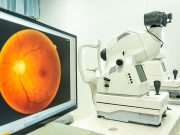Stroke Risk Low for Non-Surgically Treated Asymptomatic Carotid Stenosis
Authors say findings suggest medical management to lower stroke risk from asymptomatic carotid stenosis may be a viable option
Dietary Intake Tied to Inattention With ADHD
Children eating fewer fruits and vegetables likely to have more severe symptoms of inattention
Prenatal Exposure to Certain Antiseizure Meds Linked to Autism
Risks for ASD, intellectual disability may be increased with prenatal exposure to topiramate, valproate, certain duotherapies
AMA Survey Shows Lack of Progress on Prior Authorization Reforms
Results show little progress across all five reform areas outlined in 2018 consensus statement
Inability to Afford Prescription Meds, Specialty Care More Likely for Adults With Epilepsy
Those with active or inactive epilepsy are also more likely to have Medicaid and other public insurance
Early Brain MRI Phenotypes of Autism Tied to Familial ASD Traits
Greater levels of proband ASD traits correlated with distinctive brain MRI findings in younger siblings who later develop ASD
Retinal Layer Thickness Linked to Cognitive Decline in Older Adults
Thinner baseline total macular retinal nerve fiber layer thickness associated with larger decline in cognitive function test scores during follow-up
Drug Therapy for Peds Psych Disorders, Later SUD Risk Examined
Majority of studies showed reduced risk for developing substance use disorder with pharmacotherapy for childhood-onset psychiatric disorders
Survey IDs Challenges of Health Care Environmental Hygiene
50 of 51 health care facilities surveyed lacking in some or all of the five components of the WHO multimodal hand hygiene strategy
Healthy Lifestyle May Lower Dementia Risk Despite Genetics
Higher scores in Life's Simple 7 at midlife linked to lower risk for dementia across the range of genetic risk



















